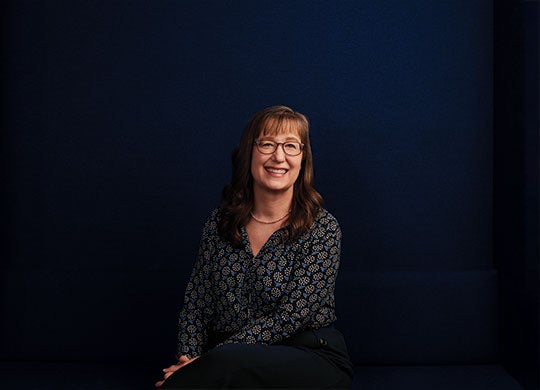An Impact Amplifier
“Think global, act local” drives the new Rice Sustainability Institute.

Spring 2024
By Mike Williams
Building successful, sustainable solutions to our urgent climate and energy challenges means balancing communities’ technical, economic, environmental and social needs. These goals are at the core of Rice’s new Sustainability Institute. Led by Professor Caroline Masiello and executive director Marie-Nathalie Contou-Carrere, the institute’s strategy is to link science and technology, economics and policy, and social sciences and the arts to effect real change.
“There are crucial problems in the sustainability space that require the ability to think about problems simultaneously from multiple disciplines, using this systems perspective,” Masiello says. “Our job is to enable scholarship that addresses the economic, technical and human dimensions of sustainability. We are also a vehicle to connect Rice to external funding, communities and stakeholders.”
Houstonians are flexible and pragmatic, making this a great place to both test new ideas and critically evaluate solutions.
The institute will support all sustainability scholarship on campus, complementing Rice’s existing strengths in the areas of coastal, carbon and sustainable energy futures. “Working in each of these spaces involves fundamental discovery and the development of new technology, all built on the basis of a strong understanding of people and their needs,” Masiello says. “For example, what does it mean to develop solutions for flood-prone coastal communities that get people out of harm’s way in a timely as well as economically and politically feasible manner? Or, how do we develop new carbon dioxide-free energy technologies that people want to use?
“Houston is well situated to build these solutions because of our experience coping with natural disasters as well as our central place in the global energy industry,” she adds. “Houstonians are flexible and pragmatic, making this a great place to both test new ideas and critically evaluate solutions.”
The institute will be an “impact amplifier,” Contou-Carrere says. “It’s not about the vision of one person or one school. It’s about doing a lot more with the resources we have.”
Beyond fostering multidisciplinary research, the institute will bring in visiting scholars, host workshops and sponsor a postdoctoral program. “Our aspiration is for Rice to be a source of scholarly excellence for the city, the state, the country and the world in thinking holistically about solving problems in the energy, climate and environment space,” Masiello says.
Learn more at si.rice.edu.
